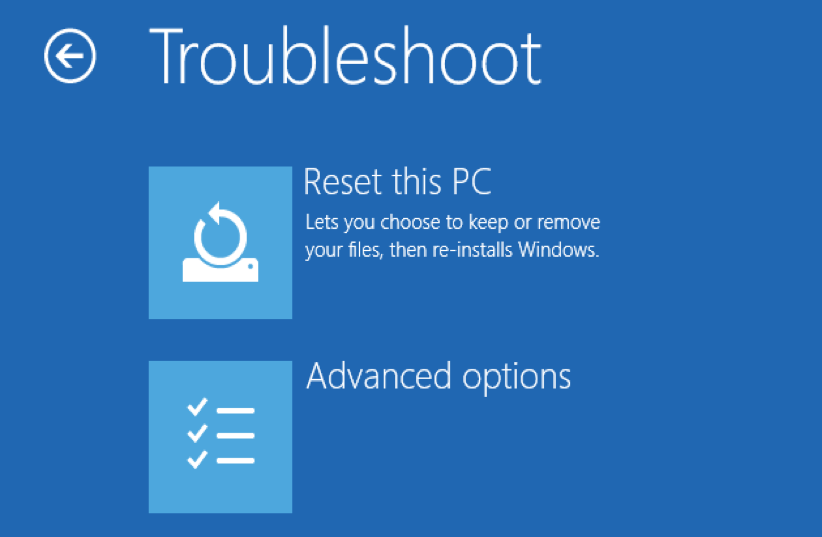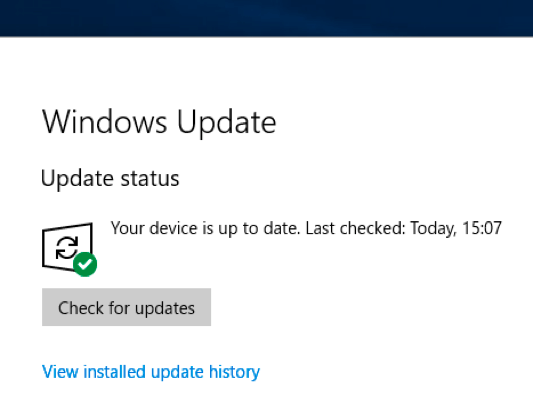| File Info | Description |
|---|---|
| File Size: | 295 kB |
| File Modification Date/Time: | 2020:03:04 14:24:24+00:00 |
✻ Portions of file data provided by Exiftool (Phil Harvey) distributed under the Perl Artistic License.
Last Updated: 11/28/2024[Time Needed for Reading: ~4-6 minutes]
PSM1 files such as BitLocker.psm1 are categorized as Developer (Windows PowerShell Script Module) files. As a Windows PowerShell Script Module file, it was created for use in Microsoft Office Access 2010 14 by Microsoft.
The release of BitLocker.psm1 introduced for Windows was on 08/01/2012 in Windows 8. The newest file release date for Microsoft Office Access 2010 14 was 07/04/2011 [version 14]. BitLocker.psm1 is found in Windows 10, Windows 8.1, and Windows 8.
Please see below for more detailed information, PSM1 file troubleshooting instructions, and free downloads of different versions of BitLocker.psm1.

File Analysis Provided by Jason Geater (Author)
Recommended Download: Fix BitLocker.psm1 / Microsoft Office Access 2010-related registry issues with WinThruster.
Compatible with Windows 11, 10, 8, 7, Vista, XP and 2000
Optional Offer for WinThruster by Solvusoft
| EULA | Privacy Policy | Terms | Uninstall
| General Information ✻ | |
|---|---|
| File Name: | BitLocker.psm1 |
| File Extension: | PSM1 file extension |
| File Type: | Developer |
| Description: | Windows PowerShell Script Module |
| User Popularity Rating: | |
| Developer and Software Information | |
|---|---|
| Software Program: | Microsoft Office Access 2010 14 |
| Developer: | Microsoft |
| Software: | Microsoft Office Access 2010 |
| Software Version: | 14 |
| File Details | |
|---|---|
| File Size (Bytes): | 301976 |
| Oldest File Date: | 06/02/2012 |
| Latest File Date: | 03/04/2020 |
BitLocker.psm1 file errors often occur during the startup phase of Microsoft Office Access 2010, but can also occur while the program is running. These types PSM1 errors are also known as “runtime errors” because they occur while Microsoft Office Access 2010 is running. Here are some of the most common BitLocker.psm1 runtime errors:
Runtime Error!
Program: C:\Windows\Temp\527D94AF-D053-4381-B105-0D815D53791E\amd64_microsoft-windows-s..-powershell.onecore_31bf3856ad364e35_10.0.16299.19_none_701d8dcfea922fde\BitLocker.psm1
This application has requested the Runtime to terminate it in an unusual way.
Please contact the application's support team for more information.

Most PSM1 errors are due to missing or corrupt files. Your BitLocker.psm1 file could be missing due to accidental deletion, uninstalled as a shared file of another program (shared with Microsoft Office Access 2010), or deleted by a malware infection. Furthermore, BitLocker.psm1 file corruption could be caused from a power outage when loading Microsoft Office Access 2010, system crash while loading or saving BitLocker.psm1, bad sectors on your storage media (usually your primary hard drive), or malware infection. Thus, it’s critical to make sure your anti-virus is kept up-to-date and scanning regularly.
If you're encountering one of the error messages above, follow these troubleshooting steps to resolve your BitLocker.psm1 issue. These troubleshooting steps are listed in the recommended order of execution.
To begin System Restore (Windows XP, Vista, 7, 8, and 10):
If the Step 1 fails to resolve the BitLocker.psm1 error, please proceed to the Step 2 below.

You can uninstall Microsoft Office Access 2010 software by following these instructions (Windows XP, Vista, 7, 8, and 10):
After the software has been fully uninstalled, restart your PC and reinstall Microsoft Office Access 2010 software.
If this Step 2 fails as well, please proceed to the Step 3 below.
Microsoft Office Access 2010 14
Microsoft Corporation
When the first two steps haven't solved your issue, it might be a good idea to run Windows Update. Many BitLocker.psm1 error messages that are encountered can be contributed to an outdated Windows Operating System. To run Windows Update, please follow these easy steps:
If Windows Update failed to resolve the BitLocker.psm1 error message, please proceed to next step. Please note that this final step is recommended for advanced PC users only.

If none of the previous three troubleshooting steps have resolved your issue, you can try a more aggressive approach (Note: Not recommended for amateur PC users) by downloading and replacing your appropriate BitLocker.psm1 file version. We maintain a comprehensive database of 100% malware-free BitLocker.psm1 files for every applicable version of Microsoft Office Access 2010. Please follow the steps below to download and properly replace you file:
If this final step has failed and you're still encountering the error, you're only remaining option is to do a clean installation of Windows 10.
GEEK TIP : We must emphasize that reinstalling Windows will be a very time-consuming and advanced task to resolve BitLocker.psm1 problems. To avoid data loss, you must be sure that you have backed-up all of your important documents, pictures, software installers, and other personal data before beginning the process. If you are not currently backing up your data, you need to do so immediately.
CAUTION : We strongly advise against downloading and copying BitLocker.psm1 to your appropriate Windows system directory. Microsoft typically does not release Microsoft Office Access 2010 PSM1 files for download because they are bundled together inside of a software installer. The installer's task is to ensure that all correct verifications have been made before installing and placing BitLocker.psm1 and all other PSM1 files for Microsoft Office Access 2010. An incorrectly installed PSM1 file may create system instability and could cause your program or operating system to stop functioning altogether. Proceed with caution.



| File Name | Description | Software Program (Version) | File Size (bytes) | File Location |
|---|---|---|---|---|
| MSFT_UserResource.psm1 | Windows PowerShell Script Module | Microsoft Office Access 2010 14 | 35297 | C:\Windows\System32\en-US\ |
| MSFT_WindowsOptionalFe... | Windows PowerShell Script Module | Microsoft Office Access 2010 14 | 16522 | C:\Windows\diagnostics\system\Search\ |
| DSCResourceHelper.psm1 | Windows PowerShell Script Module | Microsoft Office Access 2010 14 | 378 | C:\Windows\Temp\527D94AF-D053-4381-B105-0D815D5... |
| BitLocker.psm1 | Windows PowerShell Script Module | Microsoft Office Access 2010 14 | 301976 | C:\Windows\SysWOW64\ |
| MSFT_ProcessResource.psm1 | Windows PowerShell Script Module | Microsoft Office Access 2010 14 | 22804 | C:\Windows\System32\en-US\ |
| File Name | Description | Software Program (Version) | File Size (bytes) | File Location |
|---|---|---|---|---|
| OneX_v1.xsd | XML Schema Definition | Windows 8.1 | 5957 | C:\Windows\L2Schemas\ |
| OneX_v1.xsd | XML Schema Definition | Windows XP | 5957 | C:\Windows\L2Schemas\ |
| OneX_v1.xsd | XML Schema Definition | Windows 10 | 5957 | C:\Windows\L2Schemas\ |
| WLANAP_profile_v1.xsd | XML Schema Definition | Windows 8.1 | 7548 | C:\Windows\L2Schemas\ |
| WLAN_profile_v1.xsd | XML Schema Definition | Windows 8 | 15591 | C:\Windows\L2Schemas\ |

Optional Offer for WinThruster by Solvusoft | EULA | Privacy Policy | Terms | Uninstall
You are downloading trial software. The purchase of a one-year software subscription at the price of $29.97 USD is required to unlock all software features. Subscription auto-renews at the end of the term (Learn more). By clicking the "Start Download" button above and installing "Software", I acknowledge I have read and agree to the Solvusoft End User License Agreement and Privacy Policy.